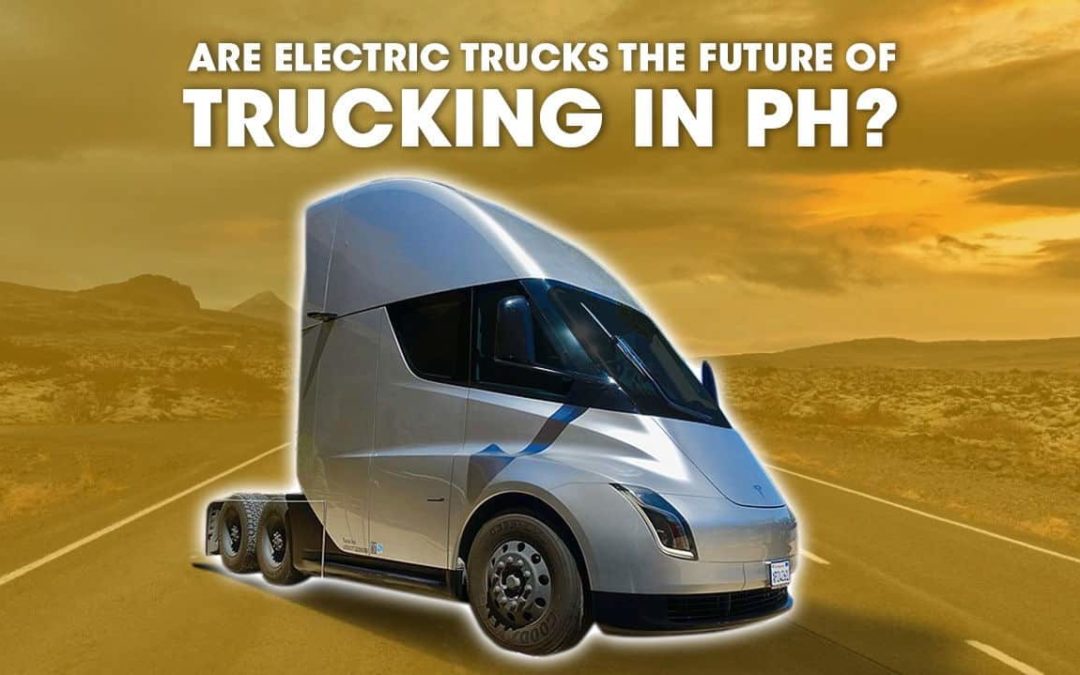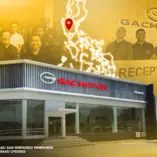BY 2018, THERE were around 7,000 electric vehicles (EVs) registered in the Land Transportation Office. On the other hand, the Electric Vehicle Association of the Philippines (EVAP) predicts that the electric vehicle market will sell 200,000 units and produce revenue of PHP 1.68 billion by 2024.
When we say EVs, most of us think of electric passenger vehicles. Will electric trucks keep up with this growth though? Is the future of trucking in the Philippines electric?
Electric Vehicle Manufacturers
Tesla isn’t the only player in the electric truck game. There’s Nikola, a similarly named electric vehicle developer startup. Nikola is especially interested in developing semi-trucks, challenging Tesla’s own semi-truck lineup.
Volvo, a well-known company of gas-powered vehicles, is also set to release its own electric semi-truck this year.
Trade Undersecretary and Board of Investments managing director Ceferino Rodolfo announced that a Filipino company based in China is set to open an electric vehicle manufacturing facility in the country to cater to a growing local demand for EVs.
The upcoming electric vehicle plant will probably produce electric passenger vehicles but it’s a stepping stone for electrifying all vehicles in the country, including trucks.
Electric Vehicle Infrastructure
One owner of a Tesla Model S shared Visor.ph what it’s like to be one of the few to drive an electric car in the Philippines. The owner has been driving the Tesla since 2013. He has a wall charger at home and brings a charging cable around in case he goes low-bat on the road. He was able to recharge in some Unioil outlets where there are public charging docks. He uses an OEM CHAdeMO adapter that plugs into any standard wall socket.
The Visor.ph article states that owning a Tesla electric car in the Philippines is “not easy, but it’s very much doable.” It certainly is doable, but not convenient given the lack of infrastructure for electric vehicles in the country.
If drivers of electric sedans are already finding limited options for places that accommodate their cars, what more for drivers of electric trucks?
The Charging Time
Electric motorcycles are starting to be much more visible in our streets as commuting via public transportation is getting harder for most people. To ensure physical distancing, public utility vehicles are slashing down from their pre-pandemic passenger capacity. Some people found convenience in buying their own ride that is cheap and does not require a license to operate.
These e-bikes are only intended for trips across small distances—the kind of ride you will take to the local market, not the kind of ride that you will carve canyons with in Marilaque. You carry light groceries with it, not packages.
Thus, charging is not a big issue for the kind of common e-bike you would come across the street. Long charging time is hardly an issue as people usually use these to get around on a Sunday morning rather than a busy and rushing weekday. Moreover, it relatively eats up less electricity as the engines of these rides do not require that much power.
Charging becomes an issue though if electric vehicles are sized up into cars and trucks. A Tesla electric car usually takes up to six to 15 hours to get fully charged. If a sedan-sized electric vehicle takes up that much time to charge, just imagine how much longer will it take for an electric semi-trailer truck to get fully charged.
In the trucking industry, if the wheel isn’t spinning, it isn’t making money. There’s got to be a huge incentive for truckers to embrace electric trucks to tolerate that 6-15 hours (or more) of downtime.
So, are we ready for Electric Trucks?
A study supported by the car manufacturer Nissan showed that the Philippines is among the top nations with high readiness to embrace electric vehicles in Southeast Asia, along with Indonesia and Thailand.
However, Maureen Ane Rosellon, a research specialist at the Philippine Institute for Development Studies (PIDS), cited that infrastructure is one of the challenges in the country’s growing demand for EVs. We simply lack recharging stations for electric vehicles. Rosellon also adds that an EV law could work on improving the infrastructure for EVs.
With the inauguration of Skyway Stage 3, we have more freeways for electric trucks to drive on and we could more or less say that we are ready for that part but we still have more room for improvement.
Should we switch to Electric Trucks?
The Philippines is among the nations that committed to the Paris Agreement on Climate Change, aiming to reduce greenhouse gas emissions to 75% by 2030. One of the ways to achieve this goal is by making our trucks electric.
Electric vehicles are known to emit zero emissions as they are powered by electricity and do not burn gasoline or diesel.
To cut our emissions, we should definitely plan on switching to EVs, including electric trucks, in the near future.
Autokid Truck Solutions is the exclusive dealer of trucks from Dongfeng, Foton, and FAW in the Philippines. These trucks are Euro-compliant, ensuring buyers trucks with lesser environmental impact. To get your very own environment-friendly truck, visit any of our branches or give us a call at +639176530000.
Featured image: Tesla Semi-truck (truck figure cropped from original photo) by Steve Jurvetson (https://creativecommons.org/licenses/by/2.0/) via commons.wikimedia.org






